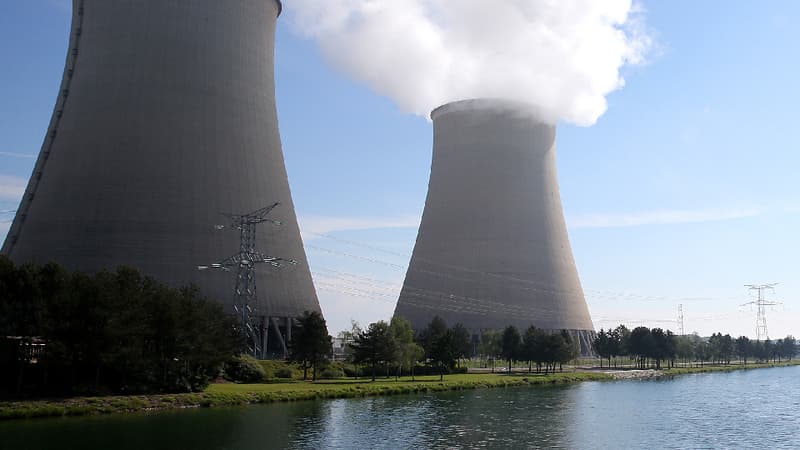The International Atomic Energy Agency (IAEA) has again raised its forecasts for the expansion of nuclear production capacity, increasingly seen as a lever for decarbonisation, according to a press release published on Monday. “The global push for nuclear energy continues at a steady pace,” said the UN agency’s director general, Rafael Grossi, at the opening of the UN agency’s general conference in Vienna.
The atom is now “increasingly recognised as a clean and safe energy source” alongside renewables in the face of the challenge of climate change, he said. The executive also mentioned “growing interest” in small modular reactor (SMR) technology, which aims to develop the combined production of electricity, heat and/or hydrogen, mainly for industrial facilities that consume a lot of fossil fuels.
Between 514 and 950 gigawatts of installed capacity in 2050
In the most favourable scenario for nuclear energy, the IAEA expects installed capacity to more than double, reaching 950 gigawatts in 2050 from 371 GW at the end of 2023 with 413 reactors in operation. Previously, it was 890 GW. In the least optimistic case, the organisation expects 514 gigawatts.
Atomic energy advocates point out that it is an energy source that emits very little CO2 and is controllable, meaning it can be mobilized as needed, unlike wind or sun. But because of the cost and risks, countries remain resolutely opposed to it or hesitate to take the plunge. Atomic energy provides 9.2% of the world’s electricity, according to 2023 figures, far behind the dominant coal.
In 2021, the IAEA raised its forecasts for the first time since the Fukushima disaster in 2011, following a powerful earthquake and a gigantic tsunami in northeastern Japan. The accident dealt a severe blow to the sector before it regained favour with the EU. Nuclear energy, which allows us to free ourselves from Russian gas, is also benefiting from the break with Moscow following the invasion of Ukraine in February 2022.
Source: BFM TV


